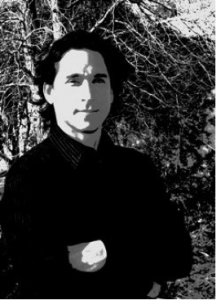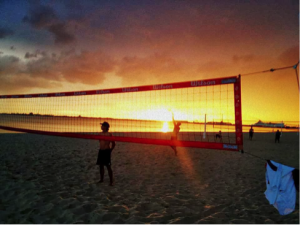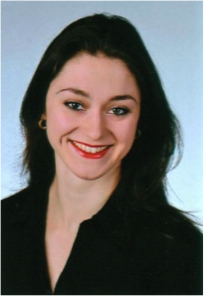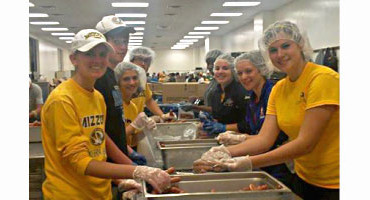Name: Roman Buckow
Job title: Stream Leader
Company: Commonwealth Scientific and Industrial Research Organisation (CSIRO)
Highest Level of Education/Degree: PhD in Engineering Science, Berlin University of Technology
Roman Buckow, Chair (2013/14) of the Nonthermal Processing Division.

What does your schedule look like tomorrow?
I am fortunate to have a very diverse and exciting job where every day is (slightly) different. CSIRO is an industrial research organization and our projects are often short-lived, multidisciplinary in nature, and (mostly) application oriented. As a stream leader, I am managing a portfolio of projects and am responsible for external income and customer satisfaction.
First thing in the morning, I will check my emails, answer the most urgent ones, grab a coffee and drive to the office to continue with another hour of emailing or admin work. My days are filled with project or team meetings or conference calls with clients or stakeholders. I also try to regularly meet with students or colleagues to run one of our food processing plants or discuss the latest project results. I would say that this is the most exciting part of the working day. Eventually, there might be more administrative work or strategy discussions before I drive home. If Melbourne’s unpredictable weather permits, go to the beach for a quick sunset beach volleyball hit with friends, which ultimately is be the best part of the day. After dinner, I will check my emails one last time and then call it a day
Sunset beach volleyball at South Melbourne beach.

How did you go about finding your current job?
I guess it was very lucky timing. Australia’s CSIRO was building its ‘Innovative Foods Centre’ for novel (non-thermal) food processing in the early 2000s. When I was in my final year of PhD, a CSIRO representative (my then soon to be boss) visited my University and advertised a Postdoctoral Fellowship position on high pressure processing of foods, which happened to be the topic of my PhD.
Having had some international work experience during my studies (I spent 3 months at VTT in Finland for my MSc thesis), I always wanted to spend more time overseas. Although I had other Postdoc options, CSIRO clearly proved to be the most attractive of them and was extremely helpful and accommodating during the application process and job interview. Apart from that, let’s also not forget that Australia offers very nice people and a great lifestyle. So, the decision was easy and probably one of the best in my life. After the Postdoc I was promoted ‘research scientist’, ‘research group leader’ and finally ‘stream leader’, which is a sort of ‘portfolio manager’.
Who do you think is the most influential person in your field of research?
That is a tricky question that’s hard to answer because there are so many colleagues that have fundamentally influenced the field of food engineering/processing over the years that it would take forever to finish this interview.
However, a couple of pioneers in the field of thermal and high pressure processing which I most admired during my studies were:
Georg Carl Hahn, the inventor of the industrial canning process and who established the ‘G.C. Hahn & Co. factory for preserved food’ in 1848 in Germany. Back then, canning was a revolutionary technology and today, more than 150 years later, it is still the most widely practiced food preservation process.
Percy Williams Bridgman, the American physicist who won the Physics Nobel Prize in 1946 for his ground-breaking work on the physics of high pressures. I can highly recommend his books/publications (e.g. “The physics of high pressure” from 1931) which are very informative and reasonably (well, it is still fundamental physics) simple to read.
When are you most inspired?
I am usually most inspired when I face a challenging task; for example, when I have to meet a submission deadline, or present in front of a critical audience. Some might call it ‘stress-addiction’, but these situations often bring out the best in me.
Of course I also enjoy listening to great scientific lectures that are presented with a touch of humor. Finally, I’d say students can also be inspiring, especially as they often are very motivated, curious and creative in finding answers to all the science questions that are still to be answered. Their sometimes candid approach can bring the most valuable insights.
Roman Buckow presenting at the 2013 International Nonthermal Food Processing Workshop in Brazil.

If you could know one thing now, that you didn’t know then, what would it be?
Interesting question … Well, my job would be a lot less stressful if I would have known the lucky numbers of last Saturday’s $20 million lottery jackpot. Okay, but more seriously, I guess it would have been much more fun learning math, thermodynamics, mechanical engineering etc if I would have known how to apply the theoretical knowledge taught at university to real life situations. Nowadays, I sometimes still enjoy these light-bulb moments when I have to apply some of the things I learned during my studies to a real industry problem.
Why should I join the Nonthermal Processing Division?
If you are a student member of IFT and your work deals with nonthermal (food) processing or simply that you have interest in this field, then you should join the Nonthermal Processing Division today! Signing up for divisions is free. The divisions are the place to network with other students and professionals and keep informed of about key news and developments from around the world in time. Joining us is a first essential step to become familiar with the division and be ready to meet people at the annual meeting and the numerous division-related events and socials. Other benefits include access to our excellent division bulletins, information on scholarships/internships and a unique chance to be closely connected to lead scientists in your field. We also organize our own annual workshops on Nonthermal Food Processing. The next one is on October 21-23, 2014, at the Ohio State University in Columbus, OH. You can learn more about the workshop at https://u.osu.edu/osunonthermal/
I would say that, in general, the more divisions you join, the wider your network (and remember it is for free). Personally, I am member of seven IFT divisions as I have a broad field of research interests.
To join the Nonthermal Processing Division, click here. You can also follow us on LinkedIn, here.
The most valuable thing I can do to further my research/career as soon as I finish reading this interview is:
Be curious and never give up when you fail. Take a nap from time to time.
What is your favorite food?
I am dying for fresh (Australian) mangoes (Kensington Pride cv.) and raspberries. I also love blue grenadier (hoki) fish from New Zealand or a nice medium-rare (grass-fed) beef steak.
About the Interviewer:
 Erika Georget has been active as European student representative for the Nonthermal Processing Division of the IFT since 2011. Erika received her Master’s degree in Food Process Technologies from the École Nationale Supérieure d’Agronomie et des Industries Alimentaires (ENSAIA, Nancy, France) in 2011. Since then, she joined the Graduate School of Natural Sciences at the Leibniz University Hanover, Germany and conducts her PhD research at the German Institute of Food Technologies DIL. There, she investigates new spore inactivation technologies in a project supported by the Nestlé Research Center, Lausanne, Switzerland.
Erika Georget has been active as European student representative for the Nonthermal Processing Division of the IFT since 2011. Erika received her Master’s degree in Food Process Technologies from the École Nationale Supérieure d’Agronomie et des Industries Alimentaires (ENSAIA, Nancy, France) in 2011. Since then, she joined the Graduate School of Natural Sciences at the Leibniz University Hanover, Germany and conducts her PhD research at the German Institute of Food Technologies DIL. There, she investigates new spore inactivation technologies in a project supported by the Nestlé Research Center, Lausanne, Switzerland.
Prior to joining DIL, she interned at Sidel Shanghai (China), the Fraunhofer Institute for Process Engineering and Packaging IVV (Freising, Germany) and the Nestlé Research Center Lausanne (Switzerland) where she worked on thermal inactivation for food preservation.






Great post, thanks for sharing. I would like know about the kind of work that he is doing. There are many non-thermal process and high pressure process, maybe he could be more specific. I am not from that research area but I like to know a litlle more about it.